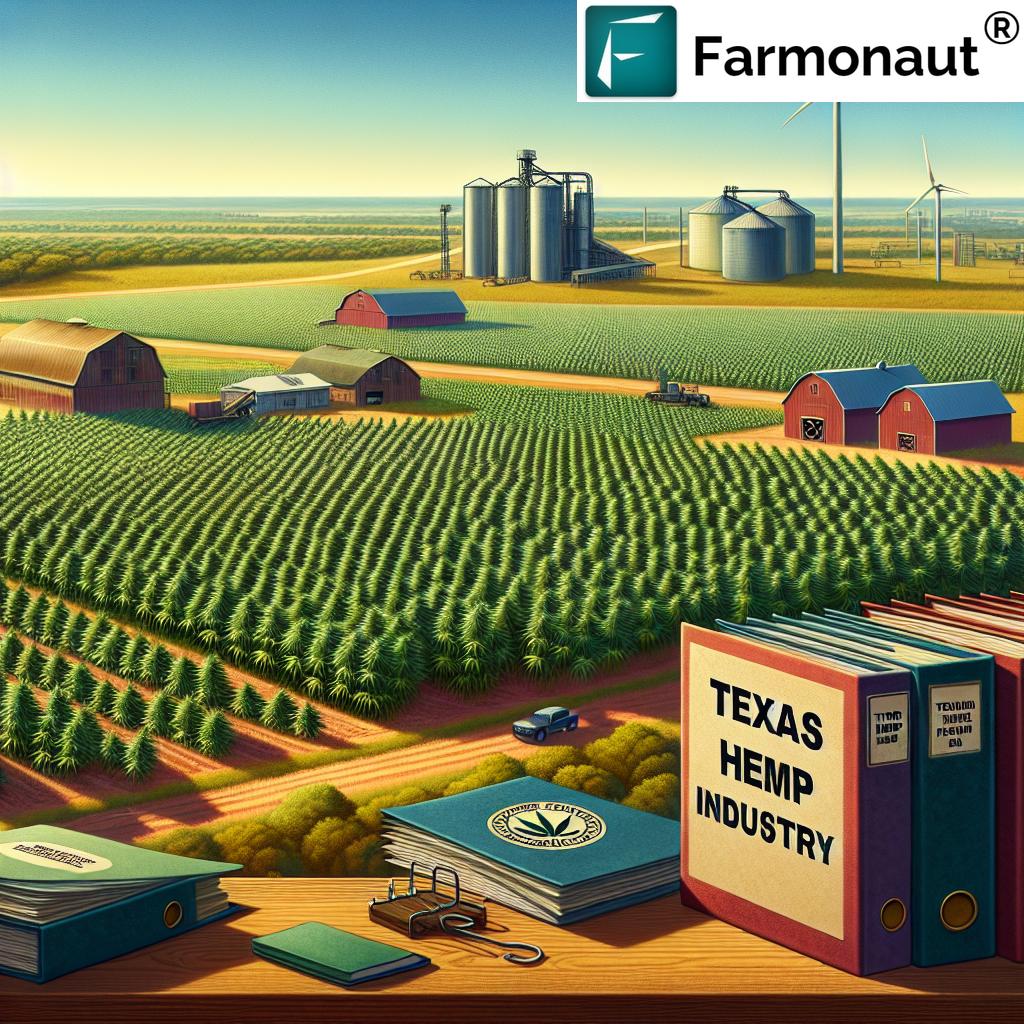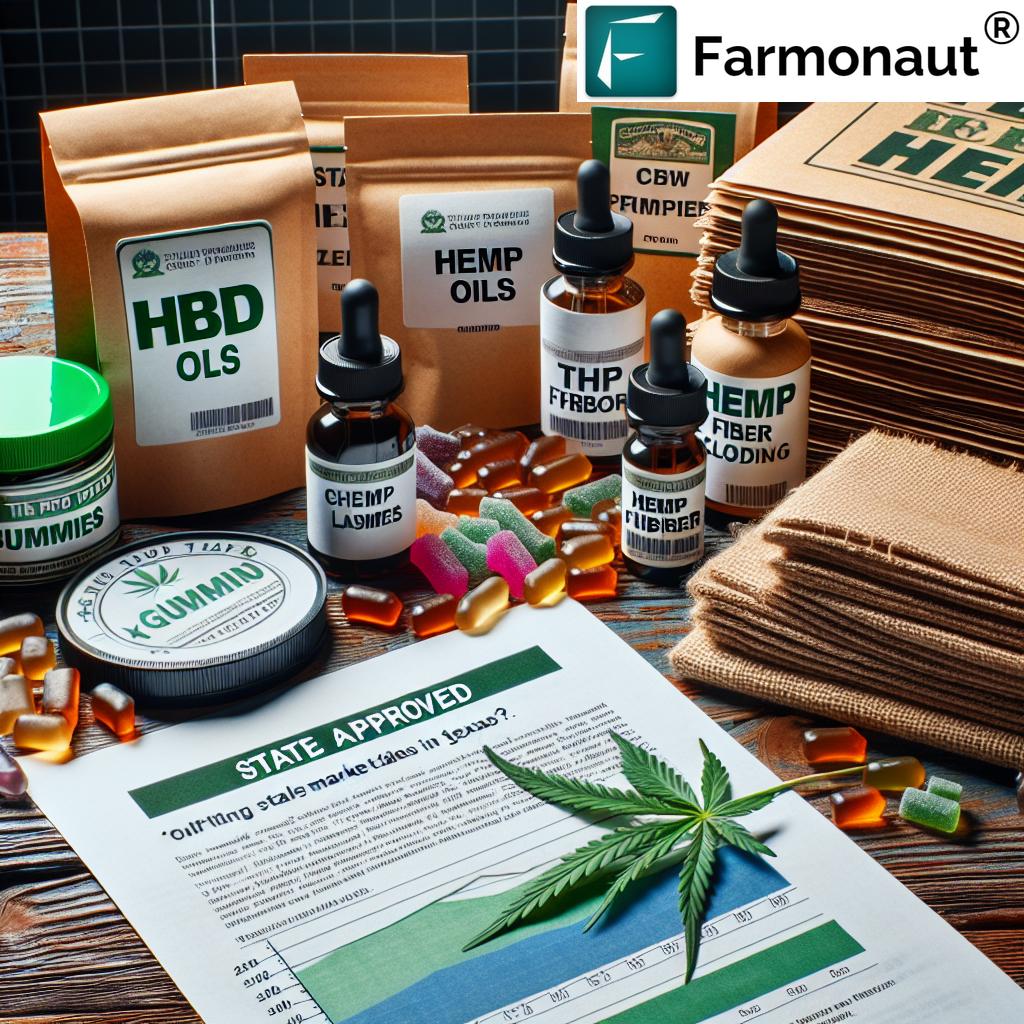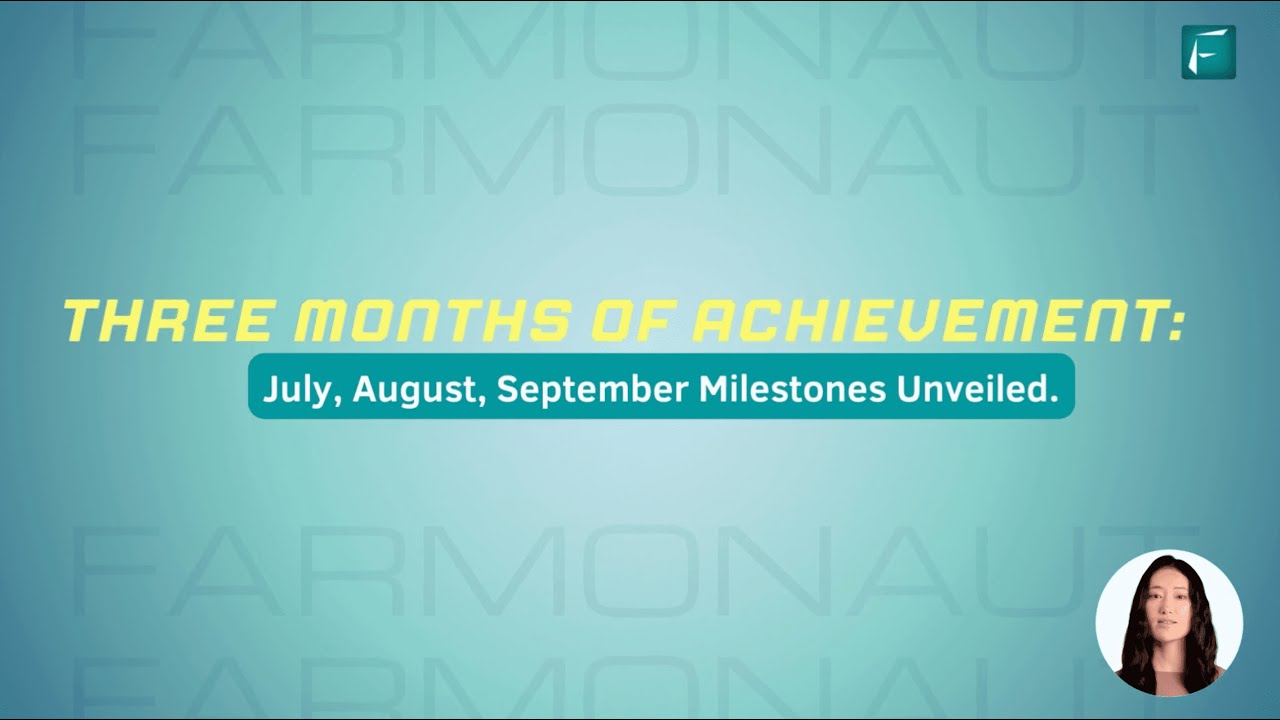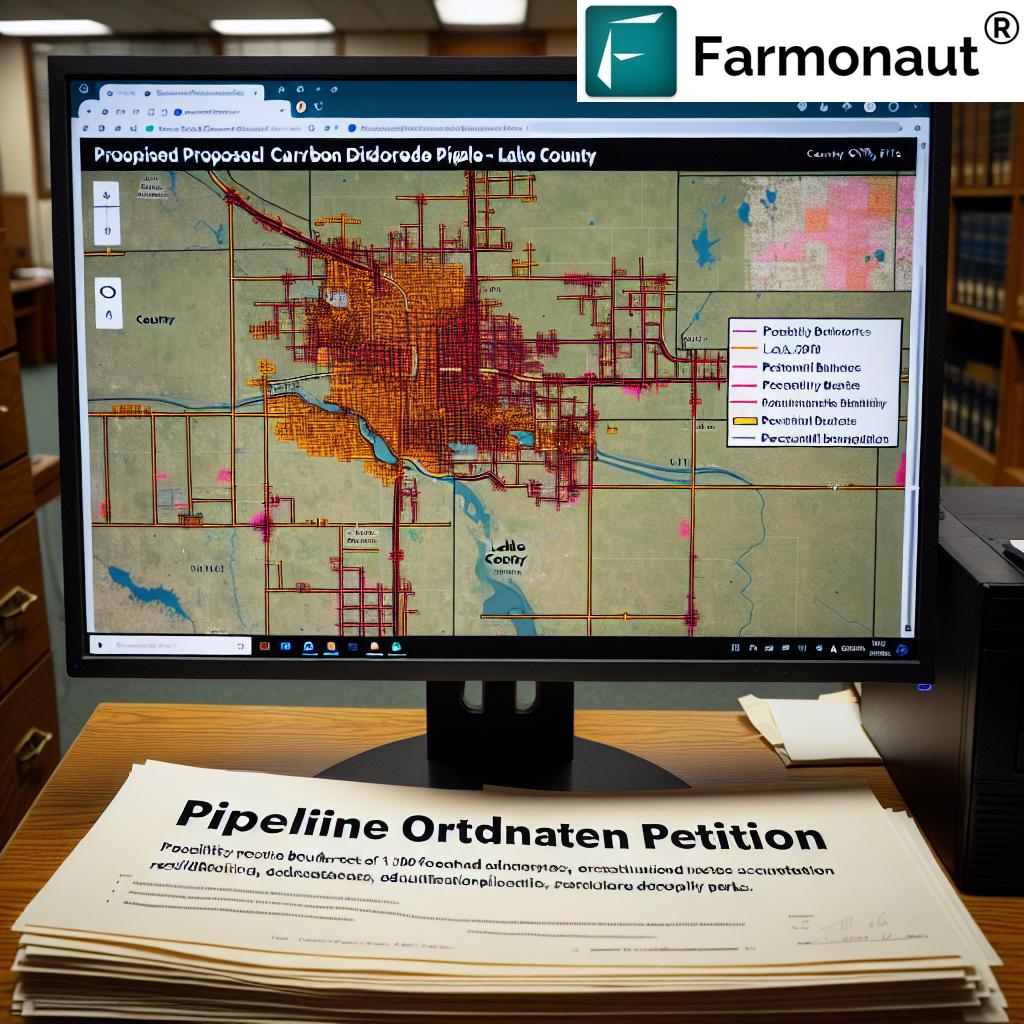Texas Hemp Industry at Risk: 7 Critical Impacts of New THC Ban
“Texas’s new THC ban could impact over 1,200 licensed hemp producers, threatening millions in annual industry revenue.”
Introduction: Why the Texas Hemp Industry Is at a Crossroads
Texas stands at a pivotal moment in the story of its hemp industry. Just six years after state lawmakers embraced the possibilities of hemp farming, production, and commercialization, the 2025 legislative session is casting a long shadow with proposed bans that threaten to upend progress. The new rules, especially the THC ban in Texas (notably Senate Bill 3 and House Bill 28), have stirred uncertainty—fueling debates among lawmakers, industry stakeholders, and farmers statewide.
Hemp, which was initially projected to be a multi-billion-dollar boon for Texas agriculture, now faces an existential risk. The focal point? A push to ban the sale and production of any consumable hemp products containing even trace amounts of THC, the psychoactive substance found in cannabis. While the intent is to address health and safety concerns, the ripple effects—intended and unintended—signal a profound transformation for those who grow, process, and bring hemp-derived goods to market.
In this extensive analysis, we’ll explore the current Texas hemp industry trends, examine the legislative battleground, and unpack the seven most critical impacts of this new THC ban. We’ll also reveal how innovative solutions, such as those from Farmonaut, can help hemp producers adapt in the face of these disruptions.
“Since 2019, Texas hemp acreage grew by 400%, but new regulations may reverse this rapid industry expansion.”
Texas Hemp Industry Trends & Market Dynamics
To understand what’s at stake, we must first chart the landscape of the Texas hemp industry:
- Rapid Expansion: Since the federal legalization of hemp in 2018 and the passing of Texas House Bill 1325 in 2019, hemp acreage across Texas has increased by over 400%. Farmers and businesses invested millions in seeds, licenses, infrastructure, and processing facilities, hoping to capitalize on an emerging market.
- Product Diversity: Texas producers now grow hemp for CBD, grain, seeds, fibers, animal feed, clothing, biodegradable plastics, supplements, and consumable oils. This breadth is crucial for market resilience.
- Profitability Concerns: Initial projections were overly optimistic, with some claiming $2,500–$3,000 per acre profits. The reality for most was never above $1,000/acre (and for many, far less), due to rapid oversupply, declining prices, and uneven market development.
- Regulatory Complexity: With state and federal rules constantly evolving—including strict THC limits, product testing, and licensing requirements—many small Texas hemp farms struggled to meet compliance expectations.
- Current Industry Valuation: Despite early setbacks, recent data suggests that the total value of hemp and its related economic footprint is now “in the billions,” making hemp a top-five crop in Texas after cattle, cotton, and grains.
The industry supports thousands of jobs and provides critical diversification for farmers in an era of fluctuating commodity prices and ongoing drought risks.
Legislative Background: Hemp Farming Regulations in Texas
The Texas hemp industry’s trajectory has been shaped by a unique interplay of state legislature rules, federal mandates, and shifting market forces since 2019:
Key Milestones in Texas Hemp Legislation
- 2018: The Federal Farm Bill legalizes hemp at the national level (with THC limits ≤0.3%).
- 2019: Texas passes House Bill 1325, authorizing the commercial production and sale of hemp and hemp-derived products, contingent on maintaining non-intoxicating THC levels.
- 2020–2024: The state develops regulatory programs for licensing, testing, production, and retail sales of consumable hemp products, including CBD and hemp oils.
-
2025 Legislative Session:
The introduction of SB 3 (Senate Bill 3) proposes a near-total ban on any consumable hemp products containing any trace of THC, even below the federally allowed threshold. House Bill 28 also aims to further restrict synthetics and sets tighter rules for retail sales, packaging, and marketing.
Why Are Lawmakers Pushing for a THC Ban?
State Senator Charles Perry (Republican, Lubbock)—a key architect behind both the 2019 legalization and the new ban—argues the law is needed to close “loopholes” that have led to proliferation of gummies, vapes, beverages, and other products that, lawmakers contend, endanger children or are being misused for their intoxicating effects.
- SB 3 criminalizes possession and production of targeted products, introduces tougher felony penalties, and could make even trace THC amounts in products like hemp seed oil or hemp hearts illegal.
- The hemp products legal status is thus in flux—and under threat—across Texas.
7 Critical Impacts of the New THC Ban in Texas
The new THC ban in Texas isn’t just a regulatory tweak: it represents a seismic shift, threatening industrial hemp production, farm profitability, market stability, and the livelihoods of thousands. Let’s break down the seven most devastating effects this legislation will—and already is—having on the Texas hemp ecosystem.
1. Threat to Hemp Production and Farming Profitability
Given that the hemp plant naturally contains trace amounts of tetrahydrocannabinol (THC), there is no practical way (using seed, genetics, or farm management) for Texas farmers to cultivate fully THC-free crops. As a result:
- Many licensed producers will be forced to abandon current or planned acreage, forfeiting significant investments in seeds, licenses, facilities, and labor.
- Hemp crop profitability will plummet further—already, declining prices and oversupply issues have left margins thin (e.g., falling below $1,000/acre for many small farms).
- Farmers specializing in CBD production Texas and those vertically integrated (controlling both production and sales) could lose monthly revenue streams of $5000–$10,000 or more.
If implemented retroactively, the law could make it a felony to harvest or process crops planted when it was still legal—risking catastrophic financial and even criminal consequences.
2. Collapse of Consumable Hemp Product Sales & Market
The market that currently supports hundreds of processors, retailers, and service providers throughout Texas—centered on consumable hemp products including oils, gummies, beverages, tinctures, and capsules—faces outright extinction.
- More than 450 licensed hemp producers and their downstream customers (retailers, distributors) face immediate loss of legal status for their businesses.
- Retail sales of CBD oils, capsules, foods, and supplements will be decimated, as even health-oriented hemp products are swept up in the broad ban.
- The legislative climate encourages banks, insurers, and investors to exit the industry, compounding economic risk.
- Small businesses are hit hardest, lacking the cash reserves or alternative crops to weather sudden regulatory bans.
3. Regulatory Uncertainty and Increased Felony Risk for Farmers
Current drafts of SB 3 and companion legislation leave key questions unanswered, creating regulatory chaos:
- It’s unclear whether crops already in the ground will be “grandfathered” or subject to retroactive bans.
- Failure to apply for or receive the state’s $500 permit fee can carry felony penalties for growers—putting livelihoods, family farms, and small-business owners in potential legal jeopardy for simply planting what was legal at the start of the season.
- Poorly defined rules create compliance headaches for good-faith actors, while doing little to deter black-market sales or “bad actors”.
Instead of improving safety, the bill intensifies fear and uncertainty, discouraging future investment in agricultural innovation statewide.
4. Decline in Investment, Infrastructure & Ag Innovation in Texas Hemp
Texas growers spent years building the backbone of an innovative, value-added industry—erecting processing plants, storage facilities, and research operations for everything from CBD extraction to industrial fiber and grain development. With the threat of a sweeping THC ban, we see:
- Suspension of planned upgrades: New investments in processing technology and expansion are paused or canceled.
- Talent flight: Skilled workers, scientists, agronomists, and value-chain entrepreneurs may leave the state for more supportive markets.
- Wasted resources: Equipment acquired through years of reinvestment may become obsolete, with little chance to recoup sunk costs.
This is a loss for all Texans, not just for hemp farmers—undermining prospects for rural development, small manufacturing, and research-led growth.
5. Lost Revenue for Texas Businesses, Counties, and the State
Official state projections estimate:
- $19.3 million annual loss in general revenue tied to the closure of hemp businesses and reduced taxable sales.
- Counties and transit authorities will lose at least $1 million/year by 2027—with general losses mounting as hemp business collapses.
- Small towns and rural communities will see reduced job opportunities, retail activity, and investment—impacts that are not fully captured in official “revenue loss” statistics.
- Collateral impacts affect suppliers, trucking firms, retail outlets, and financial services supporting the hemp sector.
This is particularly painful after years in which many counties and towns had pinned hopes on industrial hemp production Texas becoming a new growth engine.
6. Supply Chain Breakdown Affecting Food, Health, and Fiber Products
The new legislation would inadvertently make illegal:
- Hemp hearts and seed oils used in health supplements, salad dressings, and even mainstream food products.
- Animal feed and fiber hemp (such as for clothing, rope, and biodegradable plastics), because the plants naturally contain some THC.
- Industrial byproducts used for eco-friendly textiles or packaging.
The rule changes thus jeopardize the supply and legal status of dozens of products that have never posed intoxication risks or public health concerns.
7. Stifled Farm Diversification & Sustainable Agriculture Initiatives
The hemp plant is one of the most versatile components of the push for sustainable, diversified agriculture—critical as Texas water risk increases and cotton/grain price volatility grows:
- Hemp can thrive in challenging climates and supports broader crop rotation, rebuilding soil, and reducing dependence on synthetic inputs.
- Losing hemp as a legal crop forces many farmers back into monoculture systems, heightening risk and hurting long-term sustainability.
- A healthy hemp sector is also crucial for enabling experimentation with new, lower-impact practices—now threatened by the chilling effect of overzealous THC bans.
Farmers poised to respond to looming water shortages or declining aquifer supplies (like the Ogallala Aquifer) are left with fewer options and diminished hope that “diversification is survival.”
Impact Comparison Table: Before vs After the THC Ban
| Impact Area | Estimated Effect Before Ban |
Estimated Effect After Ban |
Short-Term vs Long-Term Impact |
|---|---|---|---|
| Production Volume | 450+ licensed producers; acreage up 400% since 2019 | Mass crop abandonment; many permits revoked; sharp acreage decline | Immediate crash; long-term loss of capacity & investment |
| Market Profitability | CBD/fiber/grain sales support modest profits; vertical integration possible | Major loss of retail/wholesale profits; less integration; bankruptcies likely | Short-term collapse; long-term exit of innovators, financiers |
| Job Loss & Economy | Thousands employed; new jobs in processing, retail, logistics | Widespread layoffs; rural income falls; out-of-state migration | Sudden job loss; persistent population and talent drain |
| Legal & Felony Risk | Routine compliance; risk managed via permits | Increased criminalization; potential felonies for farmers; regulatory confusion | Short-term legal chaos; lasting deterrent to new entrants |
| Product Variety | Wide range: oils, fibers, food, animal feed, consumables | Market limited to a few non-consumables; many products illegal | Sudden loss of product lines; less innovation over time |
| Revenue (State & Local) | $19.3 million+ annual state revenue; millions to counties, cities | Major drop in taxable sales, licenses; hits to county funds | Short-term revenue plunge; slow, uneven recovery if ban persists |
| Sustainability & Diversification | Supports sustainable practices, drought resilience, lower inputs | Forces return to monoculture, hurts sustainability efforts | Immediate loss of options; longer-term soil and water stress |
Alternatives to a Total THC Ban: Smarter Regulation
Many in our community—farmers, retailers, and industry experts alike—argue that regulating instead of banning provides a better way forward for Texas. Here’s how:
-
Age Restriction & Childproof Packaging:
As was enacted for vape products, hemp-derived products could be limited to consumers age 21+, with strict requirements for tamper-evident, child-resistant packaging. -
Retail Sales Limits:
Placing strict daily limits on the amount of THC a person can purchase, as proposed in some bills (e.g., max 10mg per day for consumers), could close abuse loopholes without gutting the industry. -
Testing & Traceability:
Stronger mandatory testing, along with blockchain-based product traceability (as enabled by platforms like Farmonaut – Explore Farmonaut Traceability Solutions), can ensure consumers and regulators know the origin, contents, and legal compliance of every product. -
Target “Bad Actors” Specifically:
Focus enforcement on unlicensed or non-compliant manufacturers/sellers—not on otherwise legal, responsible farmers or retailers.
By focusing on effective regulation, we can protect public health without destroying a substantial sector of agricultural innovation and economic opportunity in Texas.
Empowering Texas Farmers through Precision Agriculture: Farmonaut
Regardless of how regulatory battles unfold, the reality is that Texas farmers—especially those who invest in data-driven solutions, efficiency, and transparency—will be best placed to adapt and thrive.
This is where Farmonaut steps in, offering transformative tools that help keep Texas agriculture resilient. Here’s how Farmonaut’s technologies support hemp and all agricultural sectors:
-
Satellite-Based Crop Health Monitoring:
Using multispectral satellite imagery, Farmonaut’s platform provides real-time updates on crop health (NDVI), soil moisture, and pest/disease risks—enabling prompt, informed farm management for each acre, whether for hemp, cotton, or any crop. Affordable, scalable, and available via Android, iOS, web, and Farmonaut API, this system democratizes precision agriculture. -
AI-Driven Farm Advisory:
The Jeevn AI Advisory System offers personalized agronomic advice, weather predictions, and risk warnings tailored to local conditions—helping Texas farmers maintain compliance even as hemp farming regulations Texas change unpredictably. -
Blockchain Traceability:
Ensure every stage of hemp and ag production is securely documented—from seed to sale—instilling trust for consumers and verifying compliance for regulators and buyers. See more at Farmonaut Traceability. -
Resource & Fleet Management:
Streamline logistics and vehicle management with Farmonaut Fleet Management, helping large and small Texas hemp farms cut operational costs and run more efficiently. -
Carbon Footprinting & Sustainability:
Monitor and minimize emissions, comply with growing ESG/green mandates, and promote sustainable hemp and crop production. Discover Carbon Footprinting Solutions to support your farm’s environmental goals. -
Crop Loan & Insurance Verification:
Farmonaut’s tools help streamline loan and insurance approvals for farmers through satellite-based field verification, ensuring fair access to financing and reduced fraud risk.
Farmonaut operates on a flexible subscription basis (see below), serving both individual farmers and large agribusinesses. Learn more in-app or get started through the web.
Discover large scale farm management tools for Texas producers
Frequently Asked Questions (FAQ)
-
Q: What is the current legal status of hemp products in Texas?
A: Until new legislation such as SB 3 or HB 28 passes, hemp-derived products with THC concentrations under 0.3% remain legal in Texas. However, the legal landscape is changing rapidly, so producers and consumers must stay updated. -
Q: Will the new THC ban affect all hemp-derived products?
A: Yes, the proposed ban targets all consumable hemp products containing even trace amounts of THC—including oils, gummies, and health foods—potentially impacting all major product lines. -
Q: Are there alternatives to a total ban on THC in hemp products?
A: Regulation through age restrictions, packaging rules, mandatory testing, traceability, and targeted enforcement is widely recommended as a more effective and less economically destructive approach. -
Q: How can Farmonaut help Texas hemp farmers?
A: Farmonaut provides satellite-driven crop monitoring, AI-based advisory, traceability, carbon footprint and resource management, and loan/insurance verification tools—empowering farmers to optimize production and adapt to regulatory change. -
Q: Where can I find more about Farmonaut or start using it for my farm?
A: Visit Farmonaut’s app portal or explore the API developer docs for integration.
Conclusion: What the Future Holds for Texas Hemp
The unfolding THC ban in Texas presents a pivotal challenge for the entire hemp value chain. While the stated goals of lawmakers—protecting public health, preventing abuse, and closing loopholes—are important, the evidence shows that a blanket THC ban will devastate industrial hemp production Texas, crush local economies, and set back Texas agriculture years.
Yet, with coordinated effort and a shift toward evidence-based, targeted regulation, there is still a path forward. Farmers, producers, and industry experts are urging more nuanced policy that regulates, rather than eradicates, hemp—supporting both economic growth and public safety.
At Farmonaut, we believe the future of Texas hemp, and indeed all of agriculture, lies in embracing precision data, sustainable practices, and transparent supply chains. By equipping producers and stakeholders with the right tools and information, the Texas hemp industry can continue to innovate, adapt, and thrive—even in the face of legislative headwinds.
If you’re a Texas hemp producer, investor, or advocate—stay informed, get involved, and leverage the best technology available to safeguard your business and the future of Texas agriculture.
Discover more at Farmonaut, your partner in precision agriculture, data-driven decision making, and resilient farm management in a changing regulatory world.






















